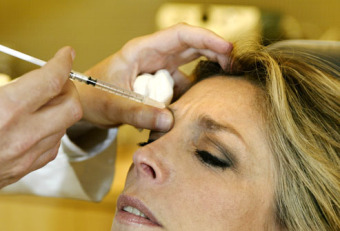Nurse Practitioner Pay In New "Medical" Spas
/
What's a good Nurse Practitioner pay in a new 'medical spa' that wants to offer Botox?
I get lots of individual emails looking for information about pay for PAs, NPs and MDs who are being recruited by a local medical spa. Some of these are just entering aesthetics and others are old hands.
Here's an example email that's typical from a NP who's being solicited by a day spa who's wanting to offer Botox and fillers:
Hello, I am a Nurse Practitioner from Wyoming and I am going to start doing some medical aesthetics for an established spa that up to this point has offered everything except medical aesthetics. The owner of the spa and I are having trouble figuring out a fair pay for me. The products are being ordered under my license and I will also be doing all the injections. Right now we are just starting out with Botox and Fillers. She pays her staff an hourly wage plus commission, but I have also talked with other spas that pay straight commission. Both of us are new to this and we are having a hard time finding out what other medical spas pay. Any insight on this would be helpful.
Sincerely,
Stephanie
Ok, so here's where we're going to drop some knowledge-bombs on you. (For this post I'm not going to go too deep on whether these types of setups are good ideas on their own.)
First, think about what you're asking and how you're thinking about this new business. You're counting your eggs a little before you've got any eggs.
The fact that you're asking how much you should be paid reveals a number of problems with your understaning of how this is going to work and who's going to be responsible. (This isn't uncommon at all and we're going to disucss business models at lenght in future posts.) Since you're the clinician, you're going to be responsible for everthing to do with this business with the probable exceptions of: #1, paying for stuff and #2 supplying the 'patients'. So let's look at what you're going to be responsible for:
- Purchasing all the Botox, Restylane and Juvederm under your medical license
- Patient care
- Charting and compliance
- Clinic operations and systems
- Malpractice insurance
Since you're going to be practicing medicine, the fulcrum in this relationship is you as the clinician. It's going to be your reputation, medical licence, malpractice insurance, and your ass on the line.
I'm reminded from a line from the science fiction novel Dune in which goes something like, "He who has the ability to destroy a thing, controls that thing." Meaning, that this is effectively going to be your business, not the spas. (Note, I'm not denying that the spa could probably find someone else to do this same deal, just that it's never going to be the spas business.)
The spa will invariably take the tact that this will be an add-on to their existing business and that the 'patients' are their customers etc. This is both wrong in practice and illegal. This will be the practice of medicine and that's pretty cut and dried. You're still going to regulated, HIPPA compliant, etc. and that's it.
You're also going to need to set this up legally in your state. In most states you can't become an employee of or partner directly with a non-physician. (Not sure about how this applies to NPs so if anyone knows, please leave a comment.)
The patients are going to be yours, the responsiblity will be yours, the insurance will be yours etc., and you can't just be paid for performing medical treatments by a non-physician. All that being said, there are ways that this can be done if you're smart, and the spa owner is reasonable.
- Set up a legal entity for yourself. (Have a real lawyer do this who has knowledge with clinicians.)
- Make sure that the spa has a legal entity. (Different lawyer there.)
- The agreement will be between these two entities. (There are different ways to set this up depending on state. In some cases it might be the NP's entity that is 'renting' space from the spa but there are other options. Read through the forum threads on this site for those.) The agreement should also clearly define scopes and responsibilities and what will happen if the business fails. In cases like this, the spa is often 'paid' for rent and/or 'marketing' expenses, not fee splits or referrals. A technicality maybe but an important one.
People always try to overlook the 'business fails' part of the equation but it's a necessity to outline this up front since this business will end at some point in the future, even if both parties are happy.
Since it's illegal in most states to be a clinician who is an employee of a non-physician, that becomes somewhat problematic since you can't be 'paid' in the normal way. I would also suggest that all monies go though your legal entity before being distributed. In effect, you take all payments, not the spa. Headache yes but medicine in the US is the most highly regulated and litigious market there is. Don't sit around on your thumbs with this.
If you look at what you're going to be required to do, the conversation with the spa should be much clearer and should help the negotiations. If the spa owner refuses to understand how this should be set up, don't do any deal. You can't negotiate in good faith with someone who is willing to put you at risk right at the start.
About your Pay?
The real question is, "how much money are you going to make?".
Business 'partners' always run into personal conflict when; they don't make any money, or.. they make a lot of money. I would suggest that you make sure that you go into this with your eyes open and the spa owner does the same. If you can't resolve the above issues then the money won't matter.
Comments welcome.







